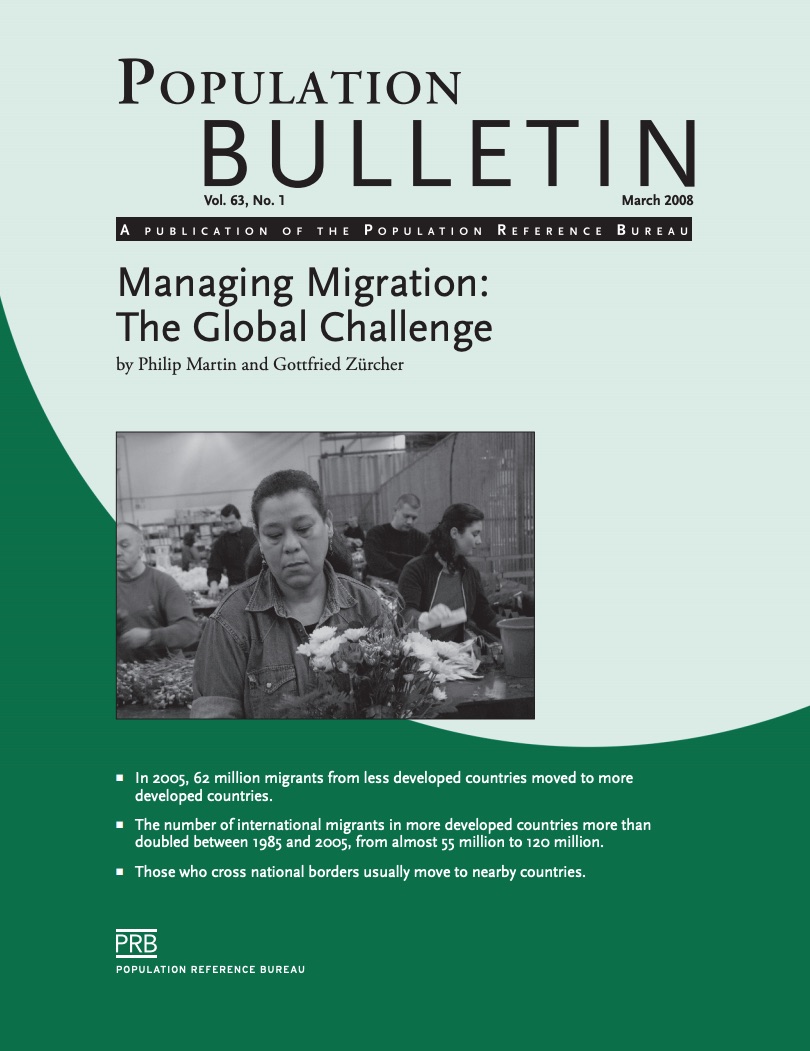PRB Discuss Online: Population and Climate Change, What Is the Link?
(2009) Climate change may adversely affect the population in many parts of the globe, in particular in developing countries where there is still substantial population growth.
(2009) Climate change may adversely affect the population in many parts of the globe, in particular in developing countries where there is still substantial population growth.
September 2008) More than 80 million people were added to the world's population in 2008, which ensures continued growth in coming decades.
(2006) The "fertility transition"—the shift from large to small families that demographers have observed throughout much of the world—has been remarkably rapid in Morocco, according to a recently released demographic and health survey on that country.

(March 2008) The number of international migrants is at an all-time high. There were 191 million migrants in 2005, which means that 3 percent of the world's people left their country of birth or citizenship for a year or more.
(2009) One in three women will experience an act of violence in their lifetime, whether it is domestic and interpersonal violence; sexual violence; violence in the name of "culture" or tradition; or systemic violence, as in the use of rape as an instrument of war.
(2005) Americans perched on punctured rooftops in the blazing sun for days. Others slogged through rising floodwaters. And many others rushed inland before the storm hit, only to remain homeless weeks later, unable to return to their ruined homes.
(2008) The global health community is mounting an unprecedented effort against the deadly scourge of malaria.
(2008) Globalization helped increase incomes in Canada, the United States, and Mexico for more than 10 years, but left many children vulnerable economically.
(2010) Policies are the foundation for building high-quality, sustainable family planning programs. However, while countries aspire to enhance equity and alleviate poverty, they all too often fail to articulate clear equity-based goals for family planning policies and strategies.
(2010) In many countries, the elderly now make up an unprecedented share of the population. This increase in the number of older people has implications for national budgets, labor force growth, and family support systems.